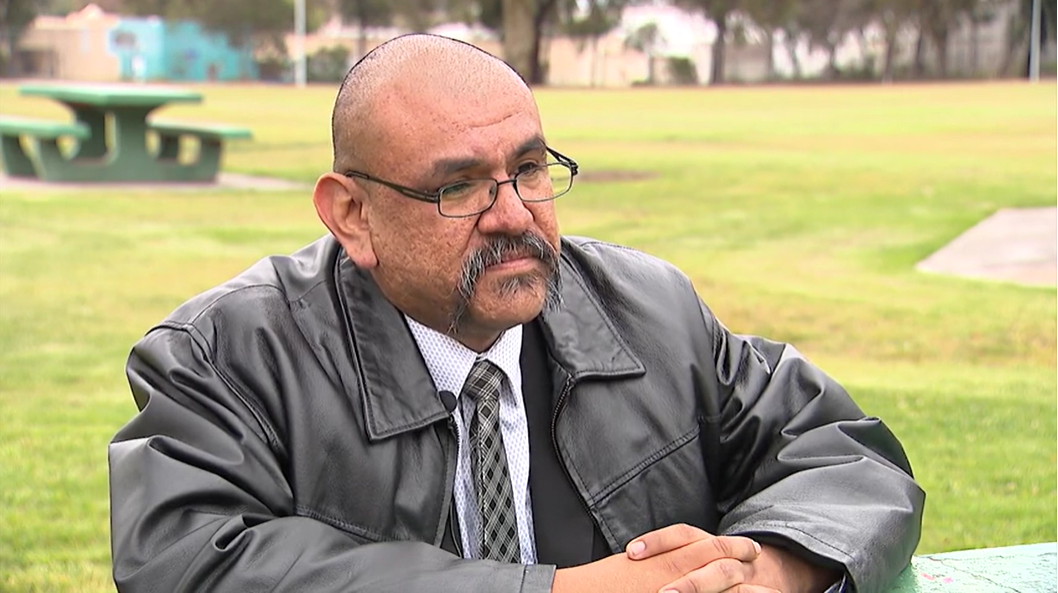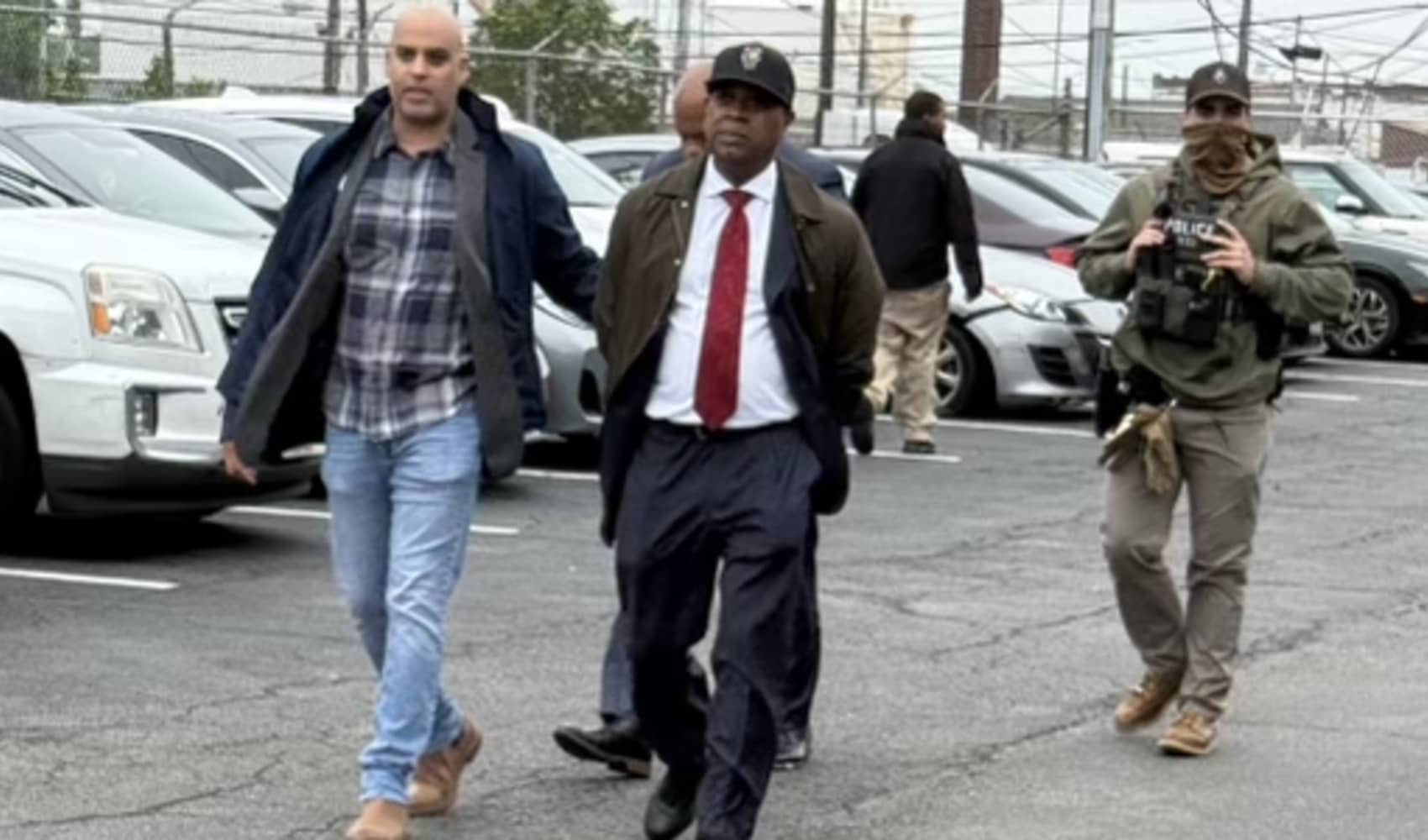DHS Orders US Citizen Out! California Advocate Targeted?
Born in the USA, Told to Leave? DHS Shocks California Advocate
Introduction: A Citizen's Nightmare?
Imagine receiving an email that turns your world upside down. An email that tells you, despite being born in the United States, you have to leave the country. It sounds like something out of a dystopian movie, right? Unfortunately, this is the reality Aldo Martinez, a U.S. citizen and immigration advocate from California, is currently facing. The Department of Homeland Security (DHS) has ordered him to leave the country, leaving him and his community in shock and disbelief.
The Email Heard 'Round the State
The email, stark and unapologetic, arrived on April 11th. It stated in no uncertain terms that Martinez’s parole was being terminated and he had seven days to depart the United States or face potential law enforcement action leading to removal. Here's the chilling excerpt:
“You are currently here because the Department of Homeland Security paroled you into the United States for a limited period. DHS is now exercising its discretion to terminate your parole. Unless it expires sooner, your parole will terminate seven days from the date of this notice. If you do not depart the United States immediately, you will be subject to potential law enforcement actions that will result in your removal from the United States.“
Born and Bred: A California Native
The irony, or perhaps the tragedy, is that Aldo Martinez's story begins in National City, California. "I was born in National City, California," Martinez declared, highlighting the fundamental contradiction in the DHS's demand. This isn't a case of someone overstaying a visa or entering the country illegally; this is a citizen being told to leave their home.
Understanding "Parole" in Immigration Law
What Does "Parole" Even Mean?
So, what's this "parole" the DHS is referring to? In immigration law, parole allows someone who may not otherwise be admissible to enter the U.S. temporarily for urgent humanitarian reasons or significant public benefit. Think of it like a temporary pass, but it doesn't grant legal status.
Why Was Martinez Granted Parole?
This is where the details get murky. Why was a U.S. citizen like Martinez ever granted parole in the first place? Was there a prior legal entanglement? Was there a misunderstanding or bureaucratic error? These are the questions that demand answers.
The Role of the Department of Homeland Security
DHS: Power and Discretion
The DHS has broad authority over immigration matters, and this includes the power to grant or revoke parole. But with great power comes great responsibility. The exercise of this discretion must be fair, transparent, and in accordance with the law. Is that the case here?
Transparency and Accountability
One of the biggest concerns in this case is the lack of transparency. Why is the DHS terminating Martinez's parole? What specific reasons are they citing? Without clear explanations, the agency risks appearing arbitrary and capricious in its actions.
Aldo Martinez: Advocate and Citizen
A Voice for the Voiceless
Beyond his citizenship, Aldo Martinez is an active member of his community, dedicating his time and energy to advocating for immigration reform. He is a voice for those who often struggle to be heard. This begs the question: Is this action by the DHS politically motivated? Is it an attempt to silence a dissenting voice?
Community Support
Martinez’s case has ignited outrage and support from fellow advocates, community leaders, and elected officials. They are rallying to his defense, demanding answers from the DHS, and vowing to fight what they see as an unjust and unlawful action.
Legal Challenges and Recourse
Seeking Legal Counsel
Martinez has undoubtedly sought legal counsel to explore his options. There are several potential legal challenges he can pursue, including arguing that the DHS's action is arbitrary and capricious, violates his constitutional rights as a citizen, or is based on factual errors.
The Burden of Proof
The burden of proof typically lies with the government to justify its actions. The DHS must demonstrate that it has a legitimate and lawful basis for terminating Martinez's parole and ordering him to leave the country. Can they meet that burden?
Possible Explanations and Scenarios
Bureaucratic Error?
It's possible that this is a case of mistaken identity or a bureaucratic error. Perhaps Martinez's information was confused with someone else's, or there was a glitch in the system. While seemingly improbable, these types of errors do happen.
Prior Legal Issues?
Another possibility is that Martinez has a prior legal issue that the DHS is now using as justification for terminating his parole. However, even if this is the case, the DHS must still provide a clear explanation and demonstrate that its actions are consistent with the law.
The Broader Implications for Citizenship
Erosion of Rights?
This case raises serious questions about the security of U.S. citizenship. If a citizen can be told to leave the country based on the DHS's discretionary power, what does that say about the fundamental rights and protections guaranteed by the Constitution? Is this a sign of an erosion of those rights?
Setting a Dangerous Precedent
If the DHS is allowed to proceed with this action against Martinez without a clear and compelling justification, it could set a dangerous precedent for future cases. It could embolden the agency to target other citizens and undermine the very foundation of citizenship.
Call to Action: What Can Be Done?
Raising Awareness
The first step is to raise awareness about this case. Share this story, talk to your friends and family, and let your elected officials know that you are concerned about this injustice. The more people who are aware of what's happening, the greater the pressure on the DHS to do the right thing.
Contacting Elected Officials
Reach out to your congressional representatives and senators. Urge them to investigate this case and demand answers from the DHS. Let them know that you expect them to uphold the Constitution and protect the rights of U.S. citizens.
Conclusion: A Fight for Justice
The case of Aldo Martinez is a stark reminder that citizenship rights are not always guaranteed. It underscores the importance of vigilance, advocacy, and holding government agencies accountable. This isn't just about one man; it's about protecting the fundamental rights of all U.S. citizens. The fight for justice for Aldo Martinez is a fight for the integrity of our Constitution and the principles upon which this nation was founded.
Frequently Asked Questions
- Why would a U.S. citizen be granted "parole" in the first place? While unusual, a U.S. citizen might be granted parole if they had previously relinquished their citizenship and were later seeking reentry, or in extremely rare cases involving complex legal or jurisdictional issues. However, this remains highly unusual and requires further clarification from the DHS.
- What legal recourse does Aldo Martinez have? Martinez can challenge the DHS's decision in federal court, arguing that it's arbitrary, capricious, and violates his constitutional rights. He can also seek a stay of deportation while his case is being litigated.
- Is it legal for the DHS to order a U.S. citizen to leave the country? Generally, no. U.S. citizens have a constitutional right to remain in the United States. However, there may be very specific and unusual circumstances where the government argues it has the authority to do so. Such cases would be subject to intense legal scrutiny.
- How can I support Aldo Martinez? You can support Aldo Martinez by sharing his story, contacting your elected officials to demand an investigation, and donating to legal defense funds that may be established to help him fight this action. Follow relevant news outlets and advocacy organizations for updates on his case and ways to get involved.
- What does this case mean for other natural-born U.S. citizens? This case, if allowed to stand, could potentially erode the security of citizenship for all natural-born U.S. citizens. It highlights the need for greater transparency and accountability in immigration enforcement and underscores the importance of defending constitutional rights.


